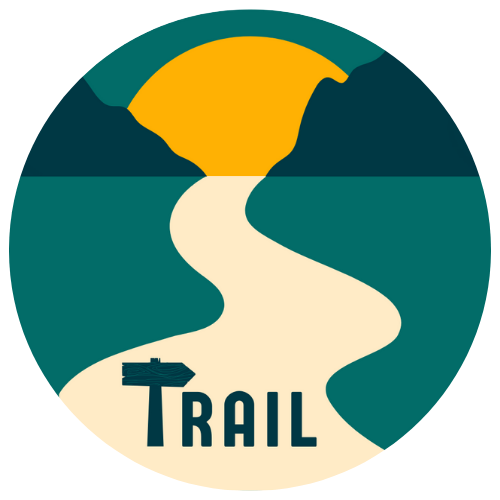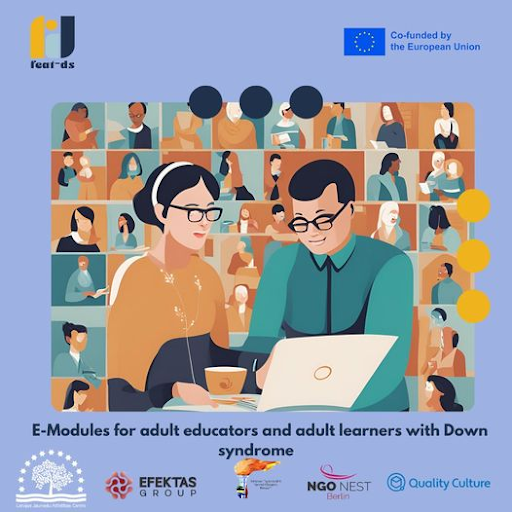- Summary
- Fact Sheet
- Synergy and Transfer
- More Information
The FEAT-DS project is dedicated to promoting inclusion and diversity in education, training, youth development, and sports, specifically focusing on individuals with Down syndrome. Instead of treating them as passive recipients, the project actively involves them as direct participants and contributors to the project’s execution. The primary goal is to create an inclusive educational environment that caters to the specific needs of individuals with Down syndrome. It started in September 2023 and it will continue till February of 2026. Project covers the topic of disabilities, equal access and transition to the labor market and new learning and teaching methods and approaches. Objectives of the project are:
- Identify hurdles for adults with Down syndrome in terms of access to sufficient education and training opportunities in the Consortium’s member countries and at the EU level.
- Provide adult educators with new methodology knowledge and abilities, as well as mentoring and support programmes, resulting in an improvement in their competencies and interventions with the target group.
- Empower adults with Down syndrome by providing them with electronic knowledge and abilities, which will boost their job potential as well as their self-esteem and social perspective.
The implementation involves a pilot phase of an e-learning course, engaging adult educators and electronics specialists in a co-design method to create a training format and web platform. Adult learners with Down syndrome will then test the blended program’s training format and web platform.
The anticipated results include deliverables such as an e-learning course for adult educators focusing on tinkering, coding approaches, and mentorship schemes, a research report detailing findings on the educational needs of adults with Down syndrome, a teaching format based on tinkering methodology designed for adult learners with Down syndrome, and a web platform with coding interactive modules adhering to high-end accessibility standards. This comprehensive approach reflects the project’s commitment to fostering inclusive and accessible education for individuals with Down syndrome.
Target Groups:
Adult learners with Down syndrome aged 18 and above and adult educators aged 20 and above
Special support required:
E-learning course for adult’s educators centered on tinkering, coding approaches, and mentorship schemes.
Research Report detailing the findings of extensive research on the educational needs of adults with Down syndrome, as well as the current offer.
Teaching Format based on tinkering methodology designed for adult learners with Down syndrome.
Web Platform with coding interactive modules that complies with high-end accessibility standards
Innovation:
The FEAT-DS project introduces several innovative elements:
It adopts a co-design method, where individuals with Down syndrome are not merely participants but are actively involved in shaping the project alongside adult educators and electronics specialists. This approach ensures that the training format is tailored to their needs.
The use of blended learning, combining e-learning courses with hands-on tinkering and coding activities, is innovative in its focus on accessibility. The training and mentorship schemes aim to empower adults with Down syndrome by providing electronics and coding skills, enhancing both their employability and self-esteem.
The web platform being developed will adhere to high-end accessibility standards, ensuring that the platform is user-friendly for adults with Down syndrome. This is a critical innovation in the realm of inclusive education, as it sets a precedent for how digital learning tools can be made fully accessible to individuals with cognitive disabilities.
The methodologies, such as the tinkering-based teaching format and coding interactive modules, could be transferred to other educational programs aimed at individuals with disabilities, creating synergies with initiatives focused on digital skills, employability, and inclusion.
There is alignment with broader EU goals around disability inclusion, equal access to education, and labor market integration. The tools, platforms, and training developed by the project could be applied in other educational and professional development contexts for people with cognitive or learning disabilities, both in Europe and globally.
Additionally, the project’s outcomes, including the research report on educational needs and the e-learning course for educators, could be used as resources for other educators and institutions, leading to wider adoption of these inclusive methods.
Project partners:
NGO Nest Berlin, MB “Efekto grupe”, NGO NEST BERLIN EV, Sdrujenie “Sporten klub “Special Olympics- Pleven”, Quality Culture SRLS
Project Website:
https://ngonest.de/de/feat-ds/

